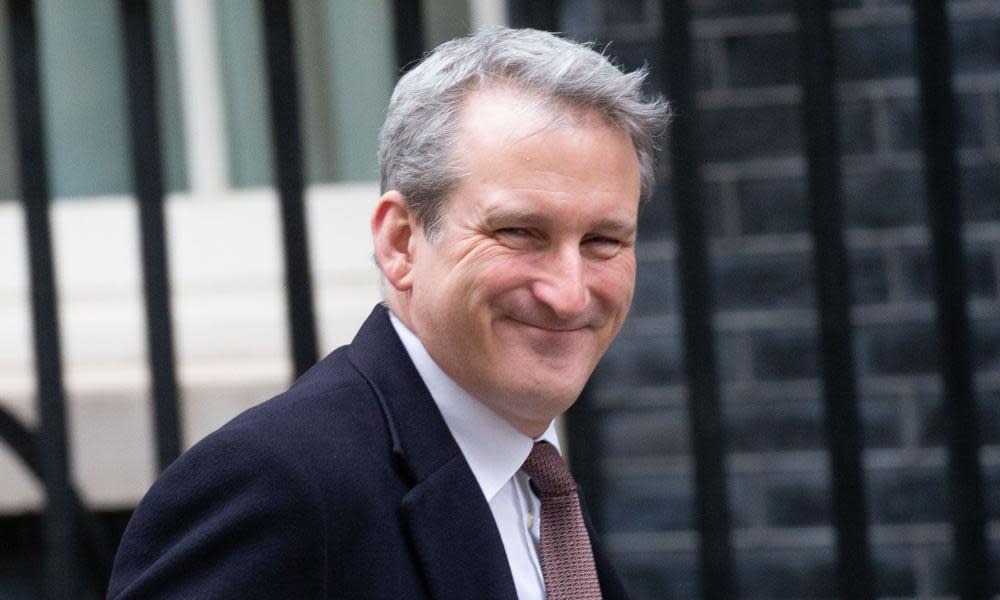Damian Hinds to lobby Treasury for multi-year education funds

The education secretary, Damian Hinds, is to lobby the Treasury for a multi-year funding settlement for education in England similar to the 10-year package announced for the NHS, MPs were told.
Hinds, appearing before parliament’s education select committee, said he would make a “a very compelling case” for more funding in this year’s spending review, agreeing that something similar to the recent NHS long-term plan was needed.
The cabinet minister’s pledge came as he was put under pressure by his fellow Conservative MPs, with Robert Halfon, the committee’s chair, telling Hinds: “We’d like to see you get up with a 10-year plan and make sure that education gets the funding that it needs for the future. Is that likely to happen?”
Hinds replied: “It will happen, I’ll be putting a strong case and, I think, a very compelling case for education.”
William Wragg, the Conservative MP for Hazel Grove in Manchester, made an impassioned plea for Hinds to convince the Treasury to boost funding. He said: “Why is it that schools in my constituency, which have been some of the most poorly funded over decades, say to me they haven’t got enough revenue for what they need?
“When the chancellor, with a typical tin-eared phraseology of his, says that there is £400m for ‘little extras’ and capital funding, that is not well received by schools.”
Wragg was referring to the controversial comment made last October by Philip Hammond, which had angered head teachers, with one saying at the time: “We’ve been sneered at.”
The MP told Hinds he needed to be “an outspoken advocate for funding for your department to the Treasury. Because at the moment, the Treasury simply do not get it.” Hinds replied: “We will be doing that. That is what the spending review, and our preparation for the spending review, will do.”
The cabinet minister was also forced to defend the Department for Education’s funding for children with special educational needs and disabilities, after the Labour MP James Frith questioned the response to the increase in legal action by parents, with each tribunal costing between £30,000 to £40,000.
“There has been an increase in provision, but it is also true that there are more demands on the system. As constituency MPs, we all meet parents who have been through those battles, and our hearts go out to them,” Hinds said.
Jonathan Slater, the DfE’s permanent secretary, assured MPs that financial controls for multi-academy trusts related to party transactions, which are financial transactions involving staff or governors, were “far and away the most rigorous regime anywhere in the world for such things”. He revealed that a DfE investigation had found 59 cases of improper related party transactions totalling £7m in 2016-17.
Trusts would now be required to report all related party transactions and those worth more than £20,000 would need to be approved by the DfE.
Slater was unable to tell MPs how many “orphan” schools – those unable to find a trust to manage them – there were in England.
Hinds also told MPs that the DfE was to second large numbers of civil servants to other government departments in the event of a no-deal Brexit.
He said: “That is the reality of no deal – across government we would have to find resources to be able to make sure that mission-critical things for people’s way of life, supply of food and medicines and so on, that those things are protected.”

 Yahoo News
Yahoo News 
